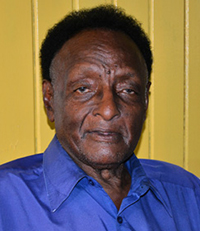Judgment for Respondent, stay of execution refused
A legal battle in 2006 between Le Resouvenir Manufactaring Inc v. Laparkan Trading Company (Guyana) Ltd ended with judgment for the Respondents and a stay of execution being refused.

According to the facts, the trial judge ordered judgment and costs against the Appellant as result of default.
After the Respondent obtained and attempted to execute a writ of execution, the Appellant filed an appeal against the order and applied by summons under Order Rule 16( c ) of the Court of Appeal Rules for a stay of execution.
Additionally ,in an effort to stay the levy proceedings , the Appellant paid the Respondent $200, 000 and issued three post-dated cheques to fully satisfy the judgment debt.
But, on the advice of his attorney-at-law, he stopped payment on those cheques.
In this current Court of Appeal matter – Civil Appeal No. 114 of 201 was decided on by Justice of Appeal Ian Chang in Chambers, November 16, 2006 and October 31, 2007.
That Judge Held: A stay of execution cannot be granted. Contrary to section 6(5)(d) of the Court of Appeal Act, the Appellant has appealed to the Court of Appeal from a default judgment , and is therefore unlikely to succeed in getting the Full Bench to set aside the default order of the trial judge at the hearing of the substantive appeal.
Moreover, the payment of $200, 000 and the issue of the cheques constituted a clearly implied representation to the Respondent by the Appellant that he would satisfy the judgment debt. On the basis of this representation, the Appellant acted and caused the execution of the levy to be stopped only to find that the implied representation is not being honoured.
Judgment for the Respondents.
Application dismissed, a stay of execution is refused.
S. Datadin for the Appellant.
R . Poonai for the Respondent.
In delivering his judgment Justice of Appeal Chang said: On the 23rd October , 2001 the Honourable Justice La Bennett ordered judgment against the Appellant, in the sum of $3, 275.22 (US) and costs in the sum of $10, 000 against the Applicant . The Respondent had obtained this judgment by default.
On the 30th October, 2001, The applicant filed an appeal against the said order of Justice La Bennett to this Court of Appeal and on the 24th December, applied by Summons under Order 2 Rule 16( c ) of the Court of Appeal Rules for a Stay of Execution.
Order 2 rule 16 (1) states that in any cause or matter pending before the Court , a single judge of the Court may on application make orders for
( c ) a Stay of execution on any judgment appealed from pending the determination of such appeal.
An application under Order 2 Rule 16 is premised on a valid pending appeal.
It is not my function as a single judge of the Court sitting in an interlocutory jurisdiction to determine the validity of the appeal filed.
Therefore, I refrain from making any legal finding as to whether the Appellant has a valid appeal pending hearing before the Full Bench.
However, I cannot completely close my eyes to the fact that Section 6 (5)(d) of the Court of Appeal Act provides as follows : “No appeal shall lie under this section (…) (d) from any order obtained by default.”
In paragraph 6 ( c ) of the Affidavit in support of the Summons , the Applicant stated : “That on the 12th February 2001, the Respondent obtained judgment in default.”
The Applicant has therefore stated that the judgment was a default judgment and it is clear that he has appealed to the Court of Appeal from a default judgment.
While there is presumptively a valid appeal pending hearing before the Full Bench and while I as a judge in Chambers sitting in an interlocutory application to determine the legal validity of this appeal, having regard to section 6 (5)(d) of the Court of Appeal Act , I find it unlikely that the Full Bench in asking itself whether it has jurisdiction to hear the appeal will determine this point in favour of the Applicant..
Therefore, I am of the view that the Applicant is unlikely to succeed in getting the Full Bench to set aside the default order of Justice La Bennett at the hearing of the substantive appeal. I therefore did not see it fit to exercise my discretion to grant a stay of execution.
Moreover, it was only after the Respondent had obtained a Writ of Execution against the Applicant and had attempted to execute that Writ of Execution that an application for a stay of execution of the judgment of Justice La Bennett was made.
Additionally , in an effort to stay the levy proceedings, the Appellant paid the Respondent $200, 000 and issued three post-dated cheques to fully satisfy judgment debt.
But, on the advice of his attorney-at-law, he stopped payment on those cheques.
In my view, the payment of $200, 000 and the issue of the said three cheques constituted a clearly implied representation to the Respondent by the Appellant that he (the Appellant) would satisfy the judgment debt.
On the basis of this representation, the Appellant acted and caused the execution of the levy to be stopped only to find that the implied representation is not being honoured.
I also did not see it fit to exercise my discretion to order a stay of execution, Justice Chang concluded.











